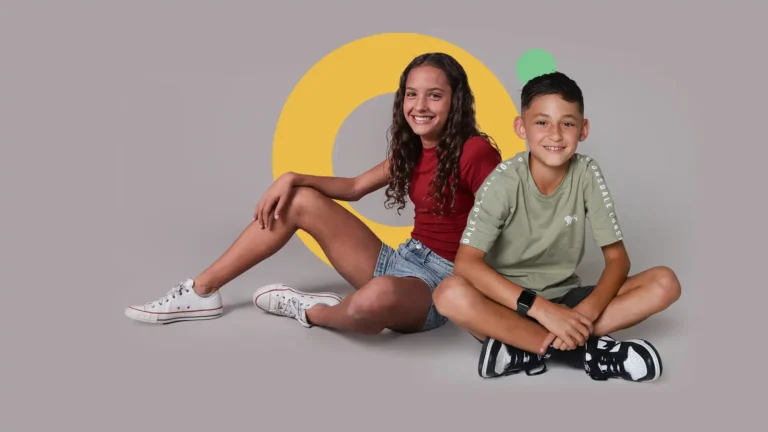Are Acting Schools Worth It? An In-Depth Analysis
So your child comes to you one afternoon asking about acting classes. They confide in you their desire to be in plays or on TV.
Before you sign them up, it’s only natural to wonder: are acting schools worth it? What will your child learn? What if they decide later on that acting isn’t what they want to pursue?
Acting school is great preparation for a career in the arts. But it can teach your child skills that transfer into other vocations, too. That’s why we’ve put together an in-depth look at what makes acting schools worthwhile.
If you’re unsure about whether an acting school is the right choice for your child, keep reading. We’ll give you all the information you need to make an informed decision.

Is Your Child Interested?
So your child expressed an interest in acting. Before jumping into the thick of it, the first thing to consider is whether your child is truly interested. If it’s something they mentioned once on a whim, they may not be that committed to performing.
On the other hand, they may always be putting on skits or playing pretend with their friends. If that’s true, and they’ve expressed an interest in acting to you, they may be ready.
Acting school is worthwhile only if your child is going to enjoy it. The more they enjoy the process, the more they’ll get out of it. But if you have to drag your child to class, it may not be the right fit for them.
If you’re not sure whether your child is really interested, try a workshop first. You can sign them up for one-off classes or events. Then, if it sparks the acting bug in them, you can look into a longer-term acting program or school.
What to Expect
So what happens in an acting class? Typically, heaps of fun! Classes will usually include some of the following activities.
First, the kids may start with a series of simple movements and vocal warm-ups. Anything to get them feeling relaxed and ready for class. They may repeat tongue-twisters or answer ice-breaker questions.
Then the kids may do a few activities to get to know one another. These may be trust exercises or team-building activities. Developing trust and strong friendships are key parts of any acting program.
For younger kids, classes may involve having to put together skits with other kids in the class. They may be asked to do some improvisation around certain prompts.
As kids get older, they may be given scenes to take home and memorise. When they come back to class the next time, they’ll perform them for feedback. These may be group skits or monologues.
If your child is part of a longer program, they may also take part in a larger-scale play or musical. If that’s the case, they may have to prepare an audition. Performances like those usually take place at least twice a year.
Learning How to Collaborate
Now that you know a bit of what to expect, what are the benefits of acting school? For one, acting classes teach collaboration.
Aside from the occasional monologue or solo, theatre is all about collaboration. Every scene involves working with other actors to move the story forward.
In acting classes, kids have to collaborate to complete activities, exercises, and scenes. They rely on their scene partners knowing their lines and are someone their partners have to rely on, too.
Acting and performing with others is a great exercise in collaboration and teamwork. And these skills will serve your child even beyond their acting school days.

Discovering Self-Expression
Acting school is also beneficial because it teaches children how to express themselves. Having a safe space in which to play allows kids to develop their unique voice and personality.
Performing requires kids to tap into a range of emotions. They may have to act out scenes that are sad, upbeat, or angry all on the same day. This teaches them how to constructively confront those kinds of emotions.
Studies have also shown the myriad benefits of the creative arts for kids and teens. Acting classes are a place outside a child’s “normal life” where they can express themselves, be silly, and try new things.

Gaining Confidence
Speaking of trying new things, acting classes help kids gain confidence, too. If your child is shy, this point is especially important for you.
Children may be hesitant to try new things. It takes them out of their comfort zone, away from their family, and requires them to rely on themselves. One reason why kids may be apprehensive is that they don’t have a lot of self-confidence.
So taking an acting class is a fun, low-pressure way for them to step out of that comfort zone. They can try something they’ve never tried before without fear of failure.
If your child wants to act but is on the shy side, encourage them to try something new. Let them know that they don’t have to do it perfectly the first time. Remind them that it’s a time for them to have fun.
Practising Public Speaking
Memorisation and presentation skills are an actor’s bread and butter. Getting up in front of people to speak is par for the course if your child wants to perform.
Acting schools are great at teaching kids how to prepare and present material. This is a huge help in school, where they’re bound to have projects to present on. It’s also a skill that they can take with them into the workforce.
Not only that but becoming a practised presenter can help kids find their voice. It may help a rambunctious child learn how to control their speech and energy levels. It can also help a quieter child speak with more confidence.

Developing Professionalism
Speaking and presenting are great skills for a child to learn, but is it worth it going to acting school to get them? There are many other ways in which acting school develops manners and professionalism.
Auditions are a great example. The first step is reaching out to agencies, theatres, and casting directors. Your child will need a headshot, which they’ll have to sit for patiently and politely.
Then they may have to deal with long periods of time in-between applying for an audition and getting one. They’ll have to keep from getting discouraged as they aren’t picked for every audition. When they do get an audition, they’ll have to prepare material and practise it over and over again. This builds a sense of discipline and commitment.
In the audition, they’ll need to treat everyone with respect. And to perform their scene to the best of their ability, they’ll have to stay confident and determined. After each audition, they may have to grapple with the reality of rejection, too. Ultimately, theatre and acting require a great deal of maturity and professionalism. These are invaluable skills to learn and make acting classes all the more worthwhile.

Meet Like-Minded Peers
Drama school is a great way to make life-long friends, too. There’s no doubt that kids need strong friendships as they grow. Why not find friends who love doing what your kids love to do?
Acting takes vulnerability. And when kids step outside their comfort zones together, they develop a strong bond. Plus, there’s nothing like the feeling your child will get when they perform with their best friends.
Pursuing a Career in the Arts
So do you need acting classes if you want to be an actor one day? We think so! And we’ll tell you why.
There are definitely ways to break into the biz without formal training. Kids can book auditions or be discovered without being part of a workshop.
But learning the craft is a helpful way to give your child a leg up. They’ll have time to rehearse, learn the ins and outs of perfecting a scene, and get the practice that they wouldn’t otherwise have.
Yes, formal training will teach a child how to act, in addition to the above-mentioned benefits. But it will also teach them how to audition well. It will help them know what they need when they reach out to an agency.
Acting schools prepare students not only for the performances but for the career, too.

Are Acting Schools Worth It?
So are acting schools worth it? Ultimately, that’s something you have to decide with your child. But we think there are endless benefits to signing your child up for acting classes.
If you feel you’re ready to connect your child with an or kids talent agency, don’t hesitate to get in touch.
Adam Jacobs is the Managing Director of Bubblegum Casting, one of the longest-running kids modelling agencies in Australia. Bubblegum Casting works with some of Australia’s biggest brands, media properties and agencies to secure talented children to work in Television, Film and Modelling roles.
6. Securing Modeling Jobs
It’s important to note that just because you’ve signed your child with an agency, doesn’t mean they are guaranteed every modeling job that is offered. Your agency will get in touch when they believe your baby is suitable for a particular job. But before each job, you will have to interview for it first.
Basically, this is the process of casting for a job. Remember that you might not be the only parent/guardian with a baby that is interviewing for a modeling job, too. Once you have completed the interview process, you should hear back quite quickly if the modeling job is theirs or not!
How to Become a Teen Model
We hope you found our brief guide on how to become a teen model helpful! The teen modelling industry is a thriving one, so if you’ve been wondering if you should pursue a career in teen modelling, the answer is yes.
Do you think you have the motivation to work hard at teen modelling? Are you ready to take the next step? If so, we at Bubblegum Casting would really love to hear from you! Fill out our application form and get started now!





